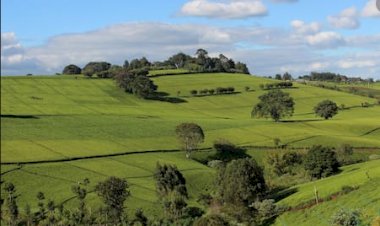Common Land Titling Similarities in Africa
While land titling processes in Africa face diverse challenges, there are several commonalities in approaches across the continent.

Land titling is a crucial aspect of land governance and tenure security, enabling individuals and communities to establish legal ownership rights over land. In Africa, where customary land tenure systems are prevalent, the process of land titling often faces unique challenges. However, there are several commonalities in land titling approaches across the continent. Here is a comparative overview of the common land titling similarities in Africa, highlighting key elements and strategies employed by various countries.
1. Legal Frameworks:
Across Africa, countries have developed legal frameworks to govern land titling processes. Many nations have enacted laws and regulations that recognize customary land rights and aim to balance customary practices with formal land registration systems. These legal frameworks often emphasize community participation, equitable access, and the protection of vulnerable groups, such as women and indigenous communities.
2. Participatory Approaches:
Participatory approaches are widely recognized as essential in land titling processes in Africa. Governments and organizations often engage local communities and stakeholders in decision-making, mapping exercises, and land registration activities. This participatory approach helps ensure that the rights of local communities are respected and that traditional land tenure systems are integrated into the formal titling process.
3. Land Mapping and Surveys:
Accurate land mapping and surveys are critical in land titling initiatives. Many African countries have invested in modern surveying technologies, such as Geographic Information Systems (GIS), to map and demarcate land boundaries. These mapping exercises aim to establish clear and reliable land boundaries, reducing conflicts over land and enabling efficient land administration.
4. Strengthening Institutions:
Effective land titling requires strong and capable institutions responsible for land administration. Countries in Africa have recognized the importance of institutional capacity building and have taken steps to strengthen land administration institutions. This includes providing training to land administrators, improving land registration systems, and ensuring transparent and efficient land governance processes.
5. Customary Land Rights Recognition:
Customary land tenure systems play a significant role in Africa, where communal land ownership is prevalent. Recognizing and integrating customary land rights into formal land titling processes is a common approach. Countries have employed various strategies, such as establishing dual land tenure systems that recognize both customary and individual rights or providing legal mechanisms to convert customary rights into formalized titles.
6. Women's Land Rights:
Recognizing and protecting women's land rights is a crucial element of land titling efforts in Africa. Many countries have implemented policies and legal reforms to address gender disparities in land ownership and inheritance. These initiatives aim to ensure that women have equal access to land titling processes, secure land rights, and the ability to participate in decision-making regarding land use and management.
While land titling processes in Africa face diverse challenges, there are several commonalities in approaches across the continent. They include similarities in the importance of legal frameworks, participatory approaches, land mapping, institution strengthening, recognition of customary land rights, and women's land rights. By learning from these commonalities, African countries can develop effective land governance systems that promote tenure security, community participation, and sustainable land management.
If you have a real estate press release or any other information that you would like featured on African Real Estate Blog Post do reach out to us via email at [email protected]

































